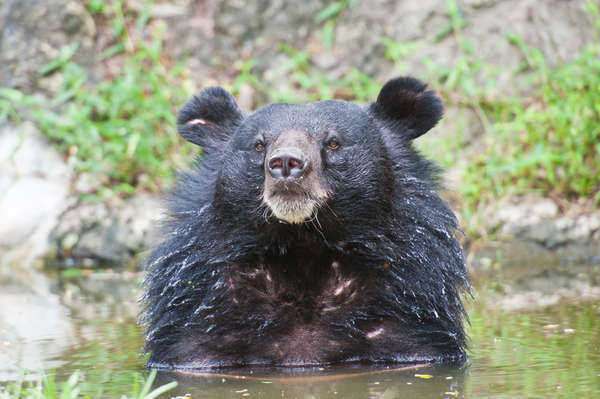New York Hunting Laws



North Carolina hunting offers some exciting and unique opportunities to hunt in the state. Many residents and tourists hunt much of the wild life including, bears, deer, wild boar, turkeys, wild turkey, squirrels, birds, migratory birds, swans, and other excited wildlife. Mainly people are regulated by the the North Carolina wildlife Resources Commission. Many of the hunting laws of the state regulate the amount of a specific animal that can be hunted.
North Carolina honors all Federal hunting laws that override state laws. Mainly this is in respect to migratory birds, and other federally controlled wildlife. Hunting laws in North Carolina prohibit any person from taking migratory birds with the use of any shot gun bigger than a ten gauge, which includes;rifles, swivel guns, shot guns and more. North Carolina hunting prohibits that hunters conceal any migratory bird in a car, boat, under water device, or aircraft. North Carolina law also prohibits the use of any animal sounds or calls for commercial use or to the benefit of any human.
A hunter may not take a bird or game that exists within a baiting zone or a place which will attract other wildlife. Additionally game and migratory birds are not allowed to be captured during off seasons or periods in which a person has reached their bag limits.
Hunting laws require every hunter keep a bag limit of all they hunt which limits the amount that they hunt each day. One of the rarest of the birds is the Swan. This waterfowl can not be hunted by everyone. In North Carolina hunting drawings are done at random and hunters are only allowed to hunt one single swan ever in their life.These laws protect the animals from being coerced into unlawful hunting in the state.
Hunting laws on big game like bears, deer, boar, turkeys, etc… are a little more lenient but not much more. North Carolina hunting prohibits any the taking of any cubs or female bears with cubs. The use of bait to coerce bears is prohibited as well, including, salt licks, grain, fruit, sugar, sugar based products or materials, small animals, or animal parts. Additionally hunting laws prohibit that hunters place any food next to an area where bears are frequently resting that may be processed with any of these ingredients.
The most important of the bear restrictions is hunting on on bear sanctuaries. Each county in North Carolina houses a sanctuary for these animals. Bears are only allowed to be hunted during hunting season that includes both Western and Eastern season. Deer are another animal regulated within North Carolina hunting.
North Carlina only permits that up to six deer are hunted at a time, which creates another bag limit within hunting laws of the state. Hunting laws outline specific seasons when it is permitted to hunt these wild animals, including; Eastern, Central, Northwestern, and western deer seasons. They are each broken down by gun, bow and arrow, and muzzle loader.
Hunting laws in North Carolina are used to solely regulate the extinction of the animals. Although it is a sport widely used by citizens within the state and abroad, it is more important that the animal be the main focus over the human hunter themselves.

North Dakota hunting is a recreational activity that many residence as well as non-residence engage in every year. Many people interested in hunting move to North Dakota to hunt a wide variety of animals. Hunting in North Dakota is extremely popular and offers one of the widest ranges of animals when compared to other states in the United States.
Hunters can seek big game such as,deer, pronghorn, moose,elk, big horn sheep, mountain lions, prairie dogs, rabbits,skunks, gophers, coyote, and fox. Hunting in North Dakota for small game like,grouse, drove, crane, pheasant, snipe, woodchuck, squirrel, and Hungarian Partridge is engaged in frequently as well. Some waterfowl are allowed to be hunted in the state like, geese, duck, coots, mergansers, and swan.
Each category in North Dakota law on hunting offers specific laws and regulations to each. Generally speaking hunting in North Dakota is regulated through a series of different licenses and education courses. People born after nineteen sixty one need to complete a certified hunter education course and show a proof of education certificate in order to receive a licence to participate in North Dakota hunting. People born during or before nineteen sixty one do not need to attend this education course, however, they may have to go through other procedures when trying to hunt in anther states.
These two laws are specifically for those that are residence of North Dakota. Those that were not born before nineteen sixty one, haven't completed a certified hunter education course, and are under the age of sixteen may be issued an apprentice hunter validation. An apprentice hunter validation is only issued for one year, and allows the hunter to hunt small game and deer when joined by an adult. North Dakota hunting is regulated in a way that ensures the safety of the person hunting and those around them. If a young hunter does not know the proper way to hunt, they can hurt someone around them.
North Dakota hunting requires a specific license for a fish, hunting, and forbear certifications that cost one dollar, small game licences that are six dollars, and small game and habitat licenses for residents of the state. Non residents are required to pay more.
Hunting in North Dakota requires that residents pay additional fees if they seek combination licenses that cost about thirty two dollars all together. Fees also exist for those that wish to purchase crane permits, pronghorn bow licenses, youth pronghorn bow licenses, deer bow licenses and more. North Dakota hunting is very regulated so that the game and fish department know what is being hunted. Hunting in North Dakota for big game offers an opportunity for the hunter to donate to the homeless through the sportsmen hunger program.
This program offers the opportunity to join North Dakotas poverty fighting program. This aspect of the game and fish department showcases that North Dakota hunting is used both as recreation and a means to fight poverty. The safety of both the animals and people are very important in North Dakota.
